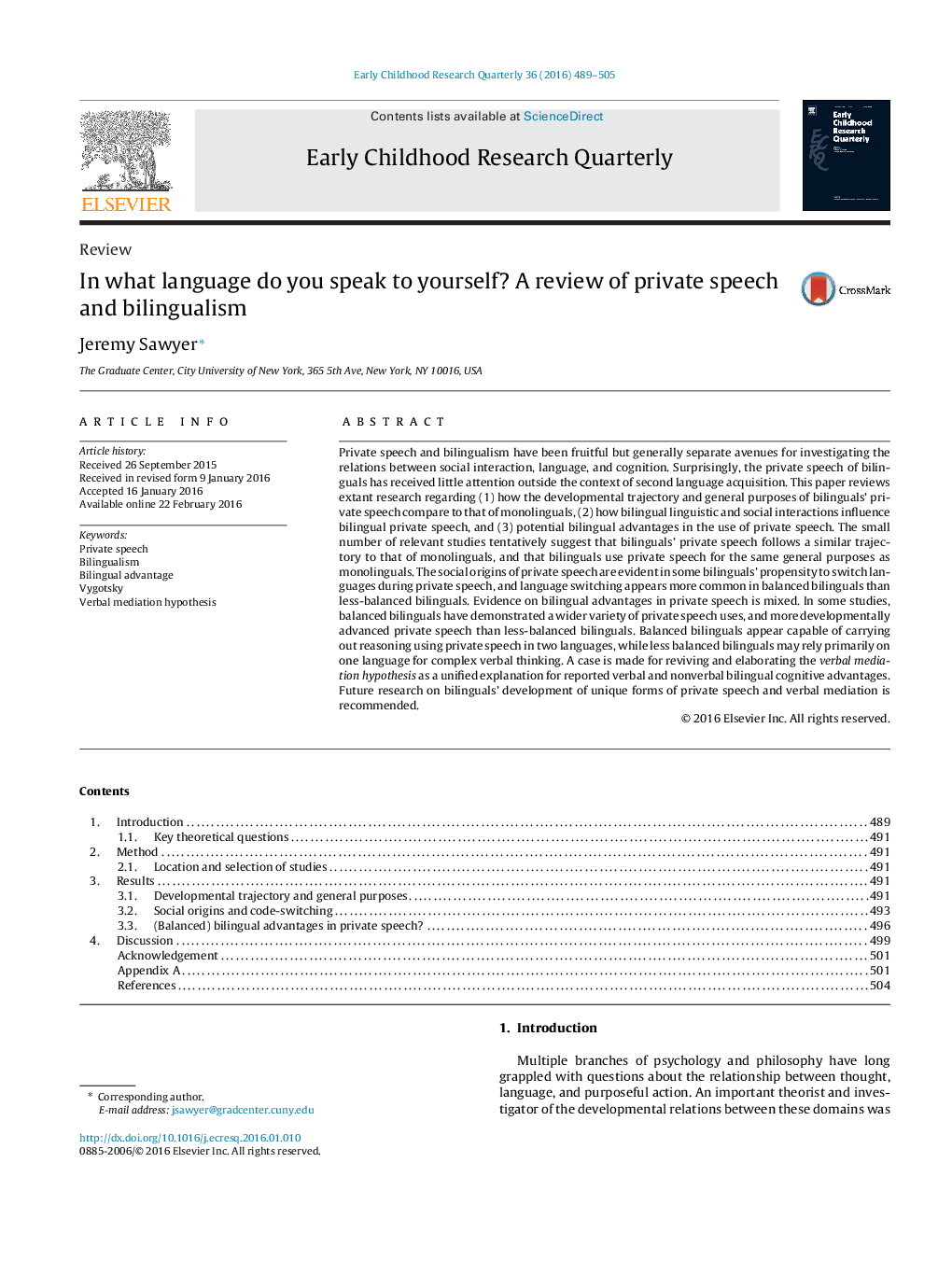| Article ID | Journal | Published Year | Pages | File Type |
|---|---|---|---|---|
| 353682 | Early Childhood Research Quarterly | 2016 | 17 Pages |
•Bilinguals’ private speech follows a similar trajectory to that of monolinguals.•Bilinguals use private speech for the same general purposes as monolinguals.•Many bilinguals use both languages for private speech.•Code-switching in private speech appears more common in balanced bilinguals.•Preliminary evidence suggests possible bilingual advantages in private speech use.
Private speech and bilingualism have been fruitful but generally separate avenues for investigating the relations between social interaction, language, and cognition. Surprisingly, the private speech of bilinguals has received little attention outside the context of second language acquisition. This paper reviews extant research regarding (1) how the developmental trajectory and general purposes of bilinguals' private speech compare to that of monolinguals, (2) how bilingual linguistic and social interactions influence bilingual private speech, and (3) potential bilingual advantages in the use of private speech. The small number of relevant studies tentatively suggest that bilinguals' private speech follows a similar trajectory to that of monolinguals, and that bilinguals use private speech for the same general purposes as monolinguals. The social origins of private speech are evident in some bilinguals' propensity to switch languages during private speech, and language switching appears more common in balanced bilinguals than less-balanced bilinguals. Evidence on bilingual advantages in private speech is mixed. In some studies, balanced bilinguals have demonstrated a wider variety of private speech uses, and more developmentally advanced private speech than less-balanced bilinguals. Balanced bilinguals appear capable of carrying out reasoning using private speech in two languages, while less balanced bilinguals may rely primarily on one language for complex verbal thinking. A case is made for reviving and elaborating the verbal mediation hypothesis as a unified explanation for reported verbal and nonverbal bilingual cognitive advantages. Future research on bilinguals' development of unique forms of private speech and verbal mediation is recommended.
